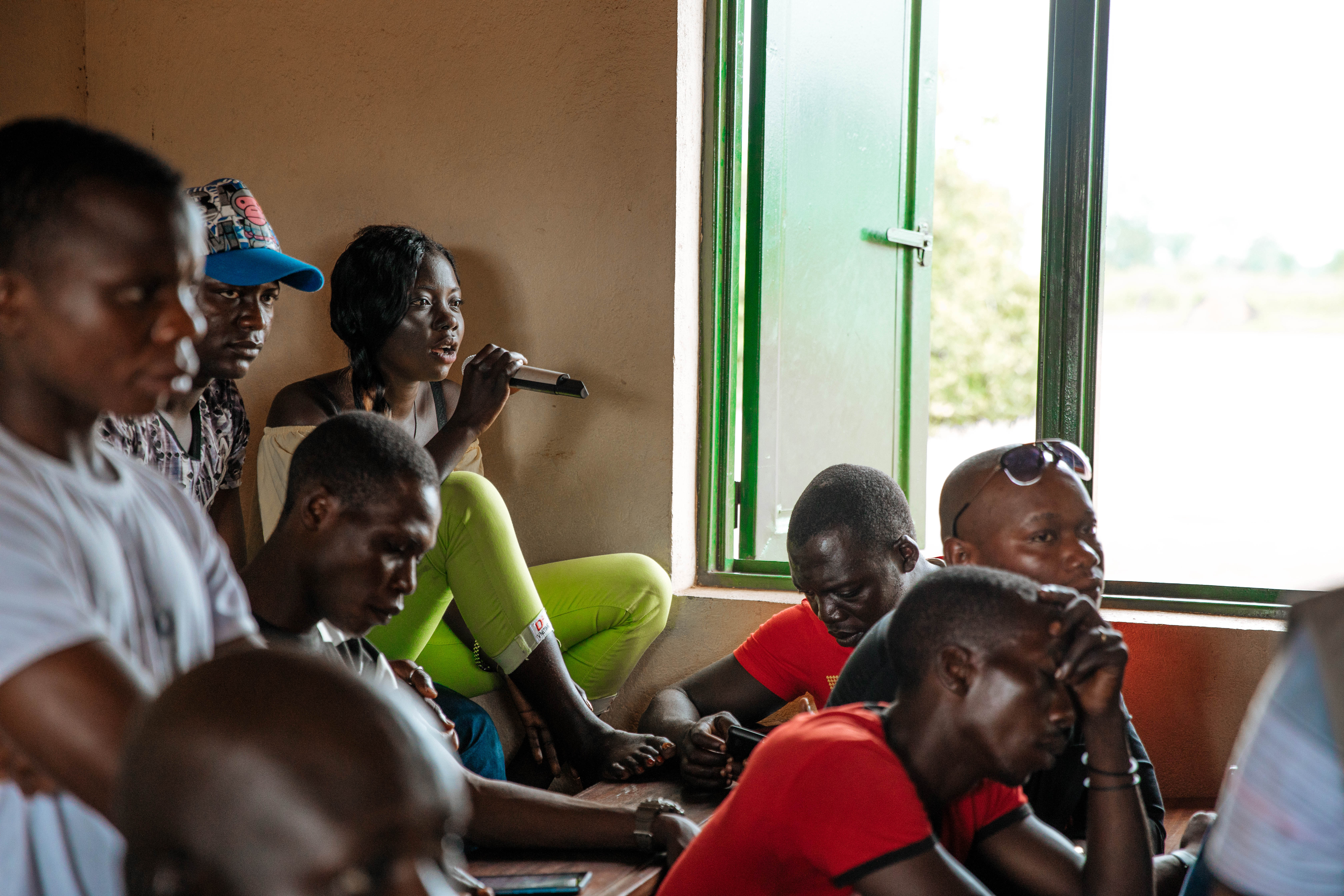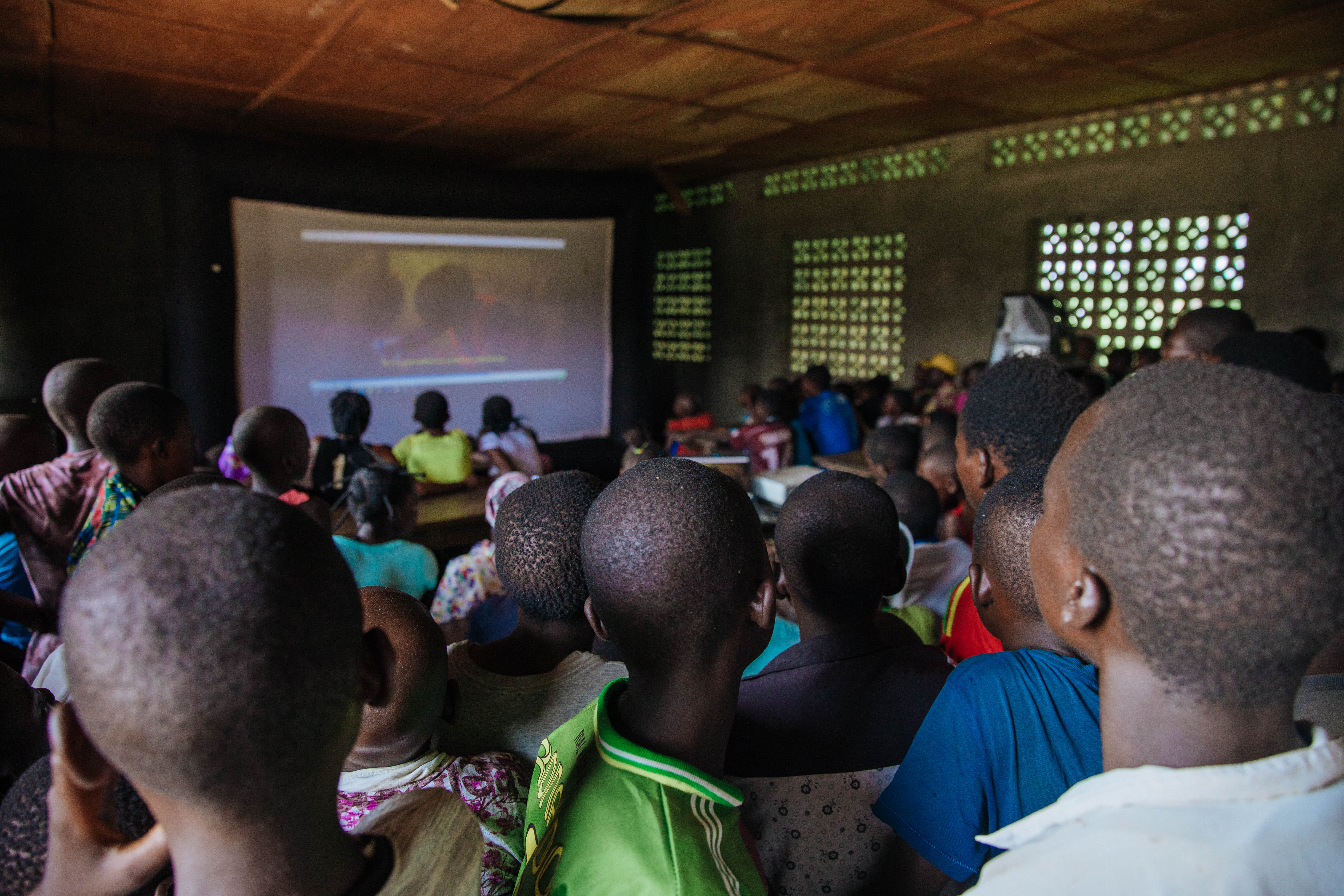Today, on World Mental Health Day, Invisible Children recognizes the complex journeys facing many around the world, and the importance of addressing the effects of violence on the mental health of those in communities working toward peace. More than a decade of working alongside communities experiencing and recovering from violent conflict, has underscored the need for trauma support in communities targeted by armed groups like the Lord’s Resistance Army (LRA). Unfortunately, for communities in central Africa, services to support those experiencing violence-related trauma or returning from armed group captivity are few and far between, leaving many stranded, making their journeys toward healing even more arduous.
Over the years, we’ve partnered with local organizations in central Africa to provide basic mental health resources and equip those experiencing the effects of trauma with tools to cope with it. This includes providing a trauma healing toolkit to local peace committees, which incorporates clinical psychosocial healing expertise into local traditional practices. With this toolkit, communities and individuals are able to address trauma together through familiar mechanisms.
Now, thanks to support from the United States Agency for International Development (USAID), we are beginning to expand our efforts to support communities addressing trauma and deepen the impact of our existing mental health programming.

In the next few months, we will identify and train teams of community counselors. We will provide training on tools critical to mental health, such as recognizing the symptoms of trauma, the importance of confidentiality, counseling techniques, and integrating mental health and psychosocial support into the primary health care continuum. With ongoing coaching, these teams will then be able to conduct community-based trauma healing seminars and workshops, incorporating traditional rituals to address conflict and trauma together.
Counseling teams will be equipped to conduct outreach in their communities and raise awareness of the resources they provide. With our support, they will be able to provide both individual and group therapy sessions for those experiencing trauma, and refer high-need individuals to receive more specialized health services. At health centers across Central Africa, we will work with the identified health structures to ensure personnel are trained to diagnose and treat mental health conditions, according to World Health Organization (WHO) guidelines.
These new programs will help people throughout these isolated communities, but especially those returning from armed group captivity. Those returning from armed groups like the LRA often face stigma within their communities which can exacerbate the effects of any trauma they carry brought on by their experiencies in captivity.
To tackle the stigma associated with returnees and raise awareness of their journeys, our Mobile Cinema project uses the power of story to help community members gain a greater understanding of a returnee’s experience. With USAID’s continued support, we screen sensitization films such as “They Came at Night” within workshops to initiate conversations about how communities can support returnees within their community.

As we travel throughout communities to provide them with tools to prevent violence and improve safety, the number one thing we hear from community leaders we meet with is the need for more resources to address trauma and and mental health.
We know that much more is needed, but we’re grateful to USAID and all of our supporters for the opportunity to take further steps to support those experiencing trauma as a part of our efforts to equip communities to prevent violence, recover from it, and build safer communities.
Your support can help us do even more to provide mental health services to these isolated, vulnerable regions. Donate today and support programs that are helping communities prevent violence and recover from trauma.
Programs described in this blog are made possible with the support of the American People through the United States Agency for International Development (USAID). The contents of this post are the sole responsibility of Invisible Children and do not necessarily reflect the views of USAID or the United States Government.

Think people should hear about this?